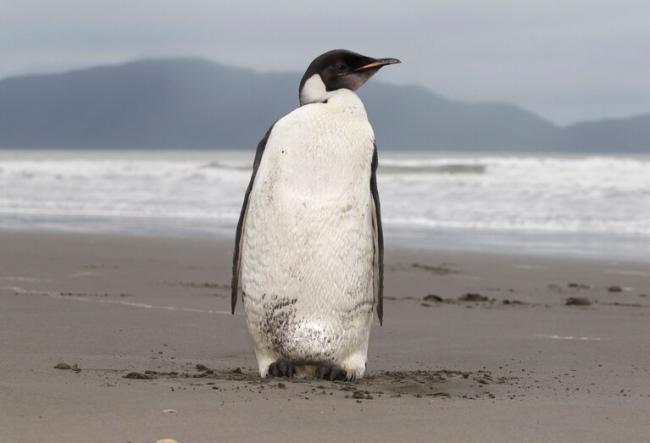Articles Menu

Aug. 4, 2021
Nearly all of the world’s emperor penguin colonies may be pushed to the brink of extinction by 2100, a study has found, as the United States moves to list them as threatened under the Endangered Species Act.
If climate change continues at its current rate, more than 98 percent of emperor penguin colonies are expected to become quasi-extinct by the turn of the century, a group of global researchers wrote in the journal Global Change Biology on Tuesday. The scientists’ near-term predictions were equally grim: They estimated at least two-thirds of colonies would be quasi-extinct by 2050.
(Quasi-extinction refers to a population being doomed for extinction even if some members of the species remain alive.)
Emperor penguins are the world’s largest penguin species. A study published in 2020 estimated there are about 280,000 breeding pairs worldwide, nearly all of which are in Antarctica. The species is especially vulnerable to climate change because, like polar bears in the Arctic, they depend on sea ice for vital activities including breeding, feeding and molting, the researchers say.
The penguins breed on stable sea ice locked to the coast, on ice shelves or on islands around the Antarctic during the winter. Sea ice floes also offer a place for adult emperor penguins to rest or seek refuge from predators.
“There is a sea ice ‘Goldilocks’ zone,” said Stephanie Jenouvrier, a seabird ecologist at Woods Hole Oceanographic Institution and a lead author of the study, in a statement. “If there is too little sea ice, chicks can drown when sea ice breaks up early; if there is too much sea ice, foraging trips become too long and more arduous, and the chicks may starve.”
In parts of the Antarctic Peninsula, according to the researchers, sea ice cover has shrunk by over 60 percent in three decades and one emperor penguin colony has already “virtually disappeared.”
An emperor penguin colony in the Antarctic’s Weddell Sea was effectively wiped out in 2016 because of record-low sea ice and early ice breakup, Jenouvrier said. More than 10,000 chicks are thought to have drowned when the sea ice broke up before they were ready to swim. A British Antarctic Survey base in the area has been mothballed in recent years, partly because of fears the nearby ice could soon calve one or more giant icebergs into the ocean, the BBC reported.
Building off information from the new study, as well as other scientific and commercial information, the U.S. Fish and Wildlife Service will list the proposal to protect emperor penguins as a threatened species on the federal register Wednesday. The Endangered Species Act has been called the world’s strongest law for preventing extinction of imperiled species, and it is increasingly being applied to animals that are threatened by climate change, scientists say.
For species outside U.S. jurisdiction, certain protections like the mandated use of evidence-based tools to reduce climate threats don’t necessarily apply. But a U.S. mandate can still promote research and conservation actions, scientists say.
The polar bear was the first species listed for protection under the act because of climate change in 2008. Researchers say the U.S. Fish and Wildlife Service decided the emperor penguin didn’t warrant listing nearly 15 years ago, in part because of uncertainty in future predictions of sea ice conditions and a lack of significant population decline.
Emperor penguins are a vital part of the Antarctic food chain, preying on krill, squid and small fish and providing a source of food for leopard seals and killer whales.
“Although they are found in Antarctica, far from human civilization, they live in a delicate balance with their environment, which today is rapidly changing — they have become modern-day canaries” for the effects of climate change, Jenouvrier said.
[Top photo: An emperor penguin stands on Peka Peka Beach on the Kapiti Coast in New Zealand. (Mark Mitchell/New Zealand Herald/AP)]